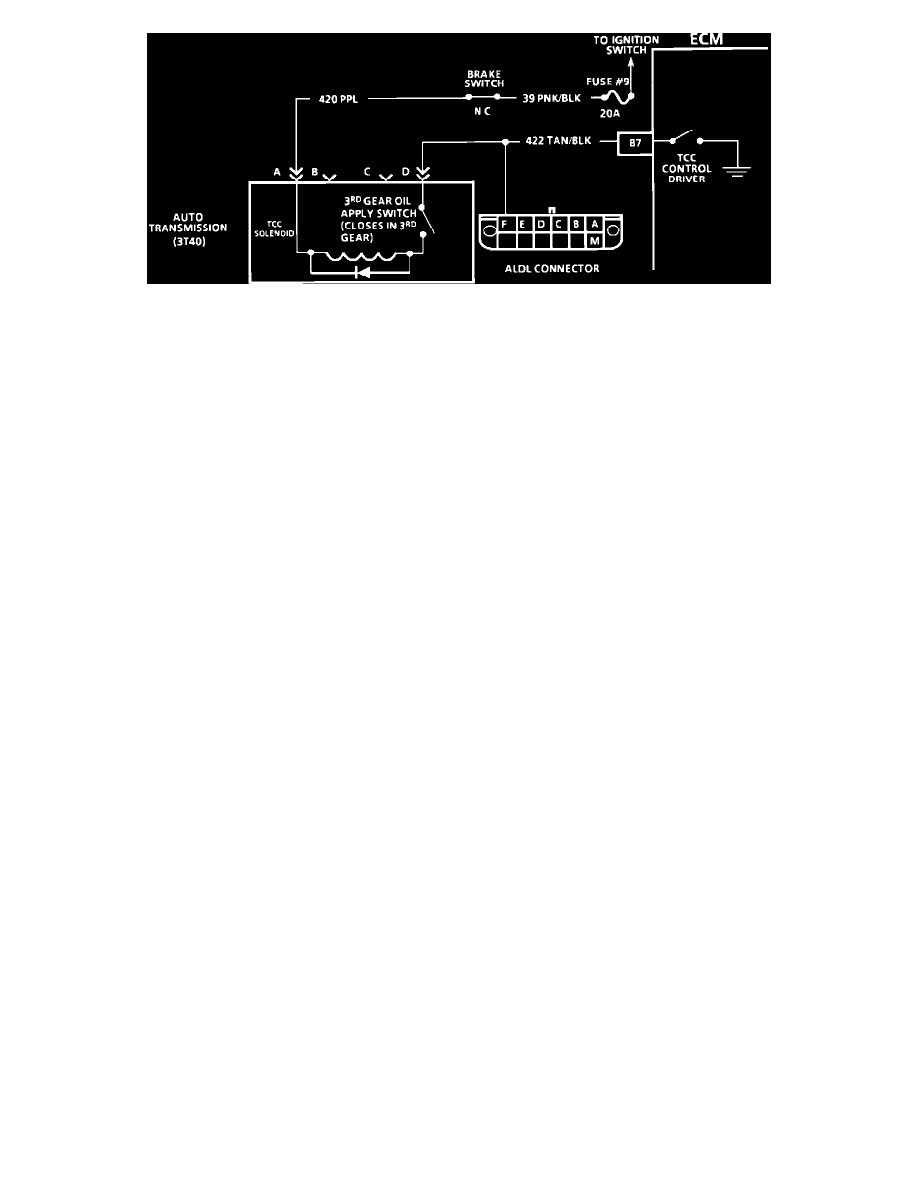Corsica L4-134 2.2L (1991)

Wiring Diagram For TCC
CIRCUIT DESCRIPTION:
The purpose of the automatic transmission Torque Converter Clutch (TCC) feature is to eliminate the power loss of the torque converter when the
vehicle is in a cruise mode. This allows the convenience of the automatic transmission and the fuel economy of a manual transmission. Fused ignition
voltage is supplied to the TCC solenoid through the brake and third gear switches. The ECM will engage the TCC by grounding circuit 422 to energize
the solenoid.
The TCC will engage when the following conditions exist:
1.
Vehicle speed above 30 mph (48 km/h).
2.
Coolant temperature above 30°C (86°F).
3.
Throttle position sensor output not changing, indicating a constant road speed.
4.
Transaxle third gear switch closed.
5.
Brake switch closed.
TEST DESCRIPTION: The numbers below refer to circled numbers on the diagnostic chart.
1.
A light "OFF" confirms transaxle third gear apply switch is open, which is OK in this step.
2.
When the transaxle third gear switch closes, the test light should illuminate.
3.
Grounding the diagnostic terminal with the engine "OFF" should energize the TCC solenoid. This checks the capability of the ECM to control the
solenoid.
DIAGNOSTIC AIDS:
An engine coolant thermostat which is stuck open or opens at a low temperature may result in an inoperative TCC. See
SPECIFICATIONS/ELECTRICAL AND ELECTRONIC SPECIFICATIONS for TCC solenoid resistance.
